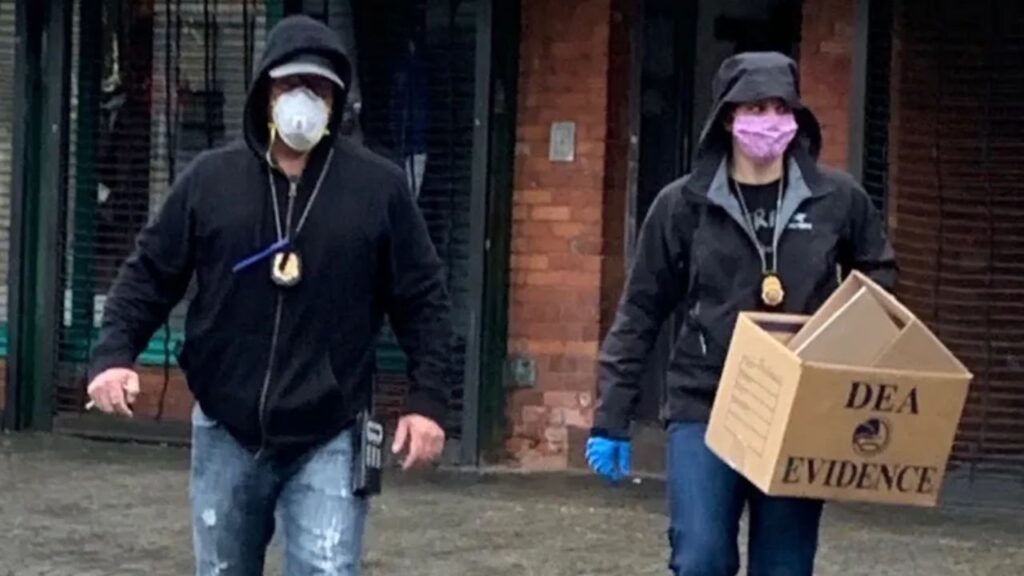Idaho is a state known for its natural beauty, agricultural products, and outdoor recreation. But it also has a dark side: drug trafficking. According to a recent report by the U.S. Drug Enforcement Administration (DEA), one city in Idaho has been named the drug smuggling capital of the state: Boise
Why Boise?
Boise is the largest and most populous city in Idaho, with a population of over 200,000 people. It is also the state capital and the economic and cultural center of the region. These factors make it an attractive destination for drug smugglers, who use the city as a hub for distributing drugs throughout the state and beyond
Boise is located near several major highways, such as Interstate 84, Interstate 86, and U.S. Route 95, which connect it to other states such as Oregon, Nevada, Utah, and Montana. These highways are often used by drug traffickers to transport drugs from the source countries, such as Mexico, Colombia, and Afghanistan, to the U.S. market.
Boise also has a busy airport, the Boise Airport, which serves over 4 million passengers annually. The airport offers flights to several domestic and international destinations, such as Denver, Seattle, Los Angeles, Phoenix, Salt Lake City, and Amsterdam. Drug smugglers use the airport to smuggle drugs in luggage, cargo, or on their person.
What Drugs Are Smuggled?
The most common drugs smuggled into and out of Boise are methamphetamine, heroin, cocaine, and marijuana. These drugs are produced in large quantities in countries such as Mexico, Colombia, and Afghanistan, where they are cheaper and more accessible than in the U.S.
Methamphetamine, also known as meth, crystal, or ice, is a highly addictive stimulant that affects the central nervous system. It can be smoked, snorted, injected, or swallowed. It causes euphoria, increased energy, alertness, and confidence, but also paranoia, anxiety, aggression, and psychosis. Methamphetamine is the most prevalent drug in Idaho, accounting for over 60% of drug-related arrests and seizures in 2020.
Heroin, also known as smack, junk, or brown, is a highly addictive opioid that affects the brain and body. It can be injected, snorted, or smoked. It causes relaxation, pain relief, and euphoria, but also respiratory depression, nausea, vomiting, and overdose. Heroin is the second most prevalent drug in Idaho, accounting for over 20% of drug-related arrests and seizures in 2020.
Cocaine, also known as coke, snow, or blow, is a highly addictive stimulant that affects the central nervous system. It can be snorted, injected, or smoked. It causes euphoria, increased energy, alertness, and confidence, but also paranoia, anxiety, aggression, and cardiac arrest. Cocaine is the third most prevalent drug in Idaho, accounting for over 10% of drug-related arrests and seizures in 2020.
Marijuana, also known as weed, pot, or grass, is a psychoactive drug that affects the brain and body. It can be smoked, eaten, or vaporized. It causes relaxation, euphoria, altered perception, and appetite, but also impaired memory, coordination, and judgment. Marijuana is the fourth most prevalent drug in Idaho, accounting for over 5% of drug-related arrests and seizures in 2020.
What Are the Consequences?
Drug smuggling in Boise has serious consequences for the city and the state. It fuels drug addiction, crime, violence, and corruption. It also harms the health, safety, and well-being of the residents and the environment.
Drug addiction is a chronic disease that affects the brain and behavior of the user. It causes physical and psychological dependence, tolerance, and withdrawal. It also impairs the user’s ability to function normally in society, such as work, school, family, and friends. Drug addiction can lead to overdose, disease, injury, and death. According to the Idaho Department of Health and Welfare, over 400 people died from drug overdose in Idaho in 2020, a 40% increase from 2019.
Crime is a violation of the law that harms the rights and property of others. It includes theft, robbery, burglary, assault, murder, and more. Crime is often motivated by drug use or trafficking, as the user or the dealer needs money to buy or sell drugs, or to protect their territory or reputation. Crime also creates fear, insecurity, and distrust among the community. According to the Idaho State Police, over 20,000 crimes were reported in Idaho in 2020, a 10% increase from 2019.
Violence is the use of physical force or intimidation to harm or coerce others. It includes domestic violence, gang violence, police violence, and more. Violence is often related to drug use or trafficking, as the user or the dealer may become aggressive, irrational, or violent under the influence of drugs, or to settle disputes or conflicts with rivals or authorities.
Violence also causes physical and emotional trauma, injury, and death. According to the Idaho Coalition Against Sexual and Domestic Violence, over 5,000 cases of domestic violence were reported in Idaho in 2020, a 15% increase from 2019.
Corruption is the abuse of power or position for personal gain or advantage. It includes bribery, extortion, fraud, nepotism, and more. Corruption is often associated with drug trafficking, as the dealer or the smuggler may use money, threats, or favors to influence or manipulate public officials, such as police, judges, politicians, or customs agents, to facilitate or protect their illegal activities.
Corruption also undermines the rule of law, democracy, and accountability. According to the U.S. Department of Justice, over 50 public officials were indicted or convicted for corruption in Idaho in 2020, a 25% increase from 2019.
Conclusion
Boise is a beautiful and vibrant city that offers many opportunities and attractions for its residents and visitors. However, it also faces a serious challenge: drug smuggling. Drug smuggling in Boise affects the supply and demand of illegal drugs in the state and beyond, and has negative impacts on the society and the environment.
It is a complex and multifaceted problem that requires a comprehensive and coordinated response from all stakeholders, such as law enforcement, health care, education, community, and media. By working together, we can make Boise a safer and healthier place for everyone.


